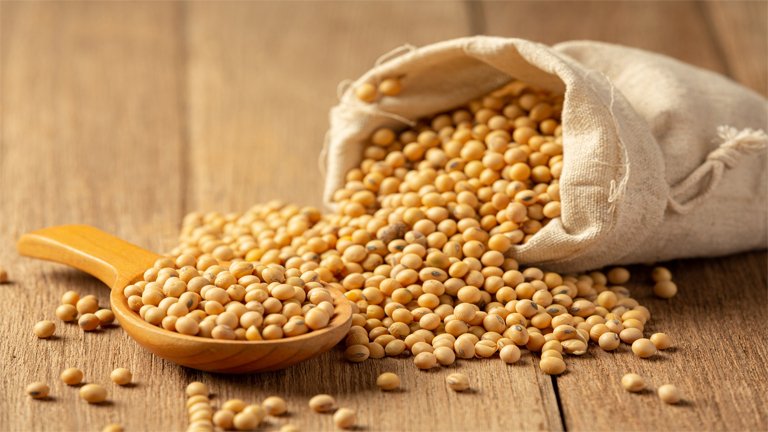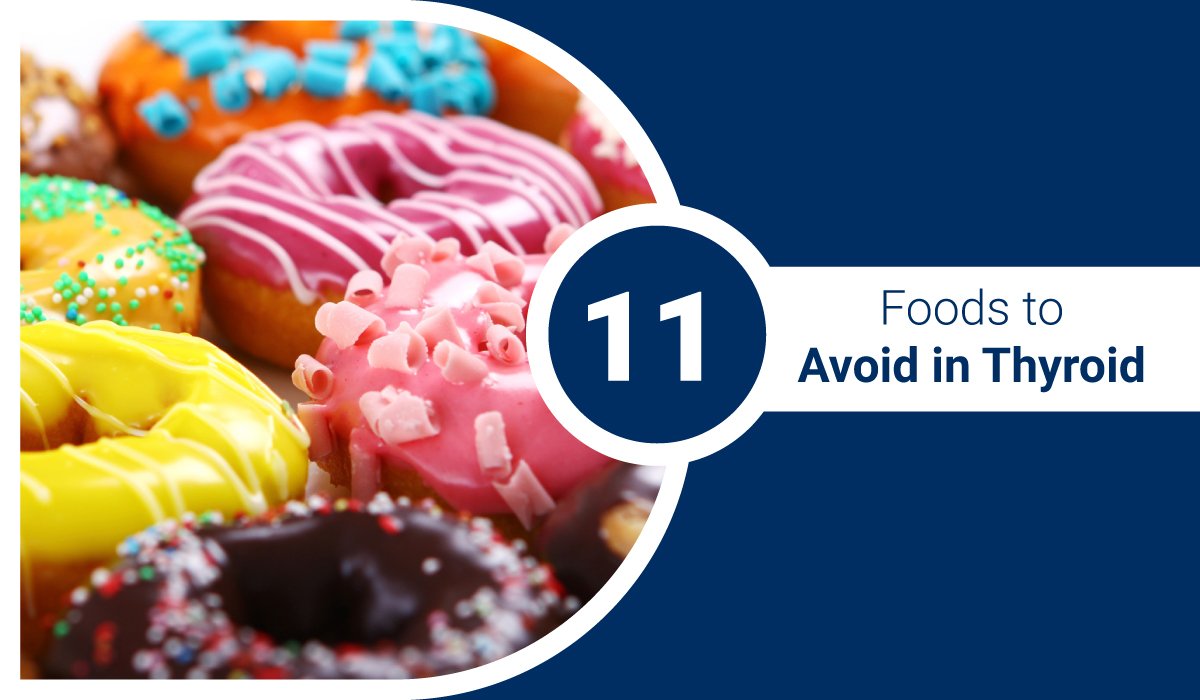The thyroid gland, a small butterfly-shaped organ located in your neck, plays a pivotal role in regulating your metabolism and overall well-being. It’s responsible for producing thyroid hormones that influence various bodily functions.
While some factors contributing to thyroid conditions are beyond your control, your diet can significantly influence your thyroid health. What you consume can either support or hinder your thyroid’s proper functioning. This is especially important when it comes to understanding the impact of foods to avoid hypothyroidism.
The Role of Diet in Thyroid Health
- Food Choices Matter: Diet is a major player in managing thyroid conditions, particularly hypothyroidism. Your dietary decisions can either support or hinder your thyroid’s proper functioning.
- Balancing Factors: While you can’t control all aspects of thyroid health, you can make well-informed dietary choices that promote your overall well-being. Certain foods can disrupt thyroid function or medication absorption, which is crucial for managing thyroid conditions, such as hypothyroidism. This is why understanding the significance of foods to avoid in the thyroid becomes essential in your dietary planning.
Foods to Avoid: Advice from a Thyroid Specialist
1. Soy-Based Foods

- Isoflavones in Soy: Soy-based products like edamame, tofu, and miso contain compounds known as isoflavones, which have raised concerns about their impact on the thyroid. These concerns often extend to considerations of foods to avoid for thyroid patients.
- Medication Timing: To avoid potential interference, it’s advisable to wait at least four hours after consuming soy-based foods before taking your thyroid medication. This can help ensure proper medication absorption.
2. Cruciferous Vegetables

- Debated Impact: Cruciferous vegetables like broccoli and cauliflower have sparked debates about their influence on thyroid function. These vegetables contain substances that may affect iodine utilization, which is essential for normal thyroid function, leading to discussions of foods to avoid in thyroid management.
- Moderation is Key: While these vegetables can be a healthy part of your diet, it’s important to emphasize moderation in their consumption. Eating them in excessive amounts may pose a risk to individuals with iodine deficiency.
3. Gluten-containing Foods

- Hypothyroidism and Celiac Disease: Hypothyroidism and celiac disease often coexist, raising questions about the role of gluten-containing foods in thyroid health. This connection has spurred discussions not only on hypothyroidism but also on foods to avoid with hyperthyroidism.
- Whole-Grain Options: When consuming gluten-containing foods, opt for whole-grain varieties of bread and pasta. These options are high in fiber and other nutrients and can help improve bowel irregularity, a common symptom of hypothyroidism. However, timing matters, and you should take your hypothyroidism medication several hours before or after consuming high-fiber foods to prevent medication interference.
4. Fatty Foods

- Disrupting Medication Absorption: Fats found in butter, meat, and fried foods can interfere with the absorption of thyroid hormone replacement medications. This disruption not only impacts individuals with hypothyroidism but also plays a role in the discussion of foods to avoid in thyroid management. It affects how effectively your body receives the necessary thyroid hormones.
- Healthcare Recommendations: Healthcare professionals often recommend reducing the consumption of fried foods and fats from sources like butter, mayonnaise, margarine, and fatty cuts of meat. By doing so, you can better support the effectiveness of your thyroid medication.
5. Sugary Foods

- Metabolism Slowdown: Untreated or undertreated hypothyroidism can lead to a slowdown in your metabolism, making it easier to gain weight. Managing your weight becomes challenging in this scenario.
- Empty Calories: Reducing your sugar intake or eliminating it from your diet can assist in managing your weight and supporting your thyroid health. Sugar offers little to no nutritional value and can contribute to unnecessary calorie intake.
6. Processed Foods

- High Sodium Content: Processed foods, frequently found in packages and the frozen aisle, tend to be rich in sodium. This high sodium content poses significant risks to individuals with hypothyroidism, further underlining the importance of understanding foods to avoid for thyroid patients. Hypothyroidism carries an increased risk of developing high blood pressure, making sodium intake a critical consideration.
- Sodium Restrictions: To support your thyroid health, it’s important to read the “Nutrition Facts” label on the packaging of processed foods to find the lowest sodium options. People at an increased risk of high blood pressure should limit their daily sodium intake to 1,500 milligrams, according to the American Heart Association’s recommendation.
7. Excess Fiber

- Balancing Fiber: While getting enough fiber is generally good for your digestive health, excessive fiber intake can complicate your hypothyroidism treatment.
- Medication Adjustment: If you transition to a high-fiber diet, consult your healthcare provider to determine whether an adjustment in your medication dose is necessary. Excessive fiber can interfere with the absorption of thyroid hormone replacement drugs, and your maintenance dose may need to be increased.
8. Caffeine Timing

- Thyroid Medication Absorption: Caffeine, found in beverages like coffee, can hinder the absorption of thyroid hormone replacement medication.
- Best Practices: To optimize medication absorption, it’s crucial to wait at least 30 minutes after taking your medication before enjoying your morning coffee. This simple practice can help ensure that your body receives the necessary thyroid hormones.
9. Alcohol Consumption

- Thyroid Hormone Levels: Alcohol consumption can wreak havoc on both thyroid hormone levels in the body and the thyroid’s ability to produce hormones, according to a study.
- Guidelines: Individuals with hypothyroidism should consider limiting or eliminating alcohol consumption for optimal thyroid health. By doing so, you can better support your thyroid’s proper functioning.
10. Excessive Iodine Intake

- Iodine’s Importance: Iodine is vital for normal thyroid function, as it is a key component of thyroid hormones.
- Balanced Consumption: Maintaining a balanced iodine intake is crucial to support thyroid health without overconsumption. Be mindful of iodine-rich foods and supplements to avoid excessive intake.
11. Processed Meats

- Sodium and Preservatives: Processed meats such as sausages, hot dogs, and bacon contain high levels of sodium and preservatives.
- Heart Health Concerns: Individuals with hypothyroidism should consume these meats in moderation or avoid them to minimize the risk of high blood pressure. Processed meats, due to their sodium content, can pose risks to those with an underactive thyroid.
Conclusion
The impact of your dietary choices on thyroid health, particularly for those with hypothyroidism, cannot be overstated. Understanding the significance of foods to avoid with hypothyroidism is essential in managing your condition effectively. Consulting with a thyroid specialist and an experienced endocrinologist Doctor in Ahmedabad like Dr. Moxit Shah in Ahmedabad can provide you with the guidance and expertise needed to make informed dietary decisions that promote your overall well-being. Bear in mind that, although there’s no universal “thyroid diet” suitable for everyone, making the right choices can substantially enhance your thyroid’s optimal performance and enhance your quality of life as a thyroid patient, all while considering the foods to avoid for thyroid patients.







